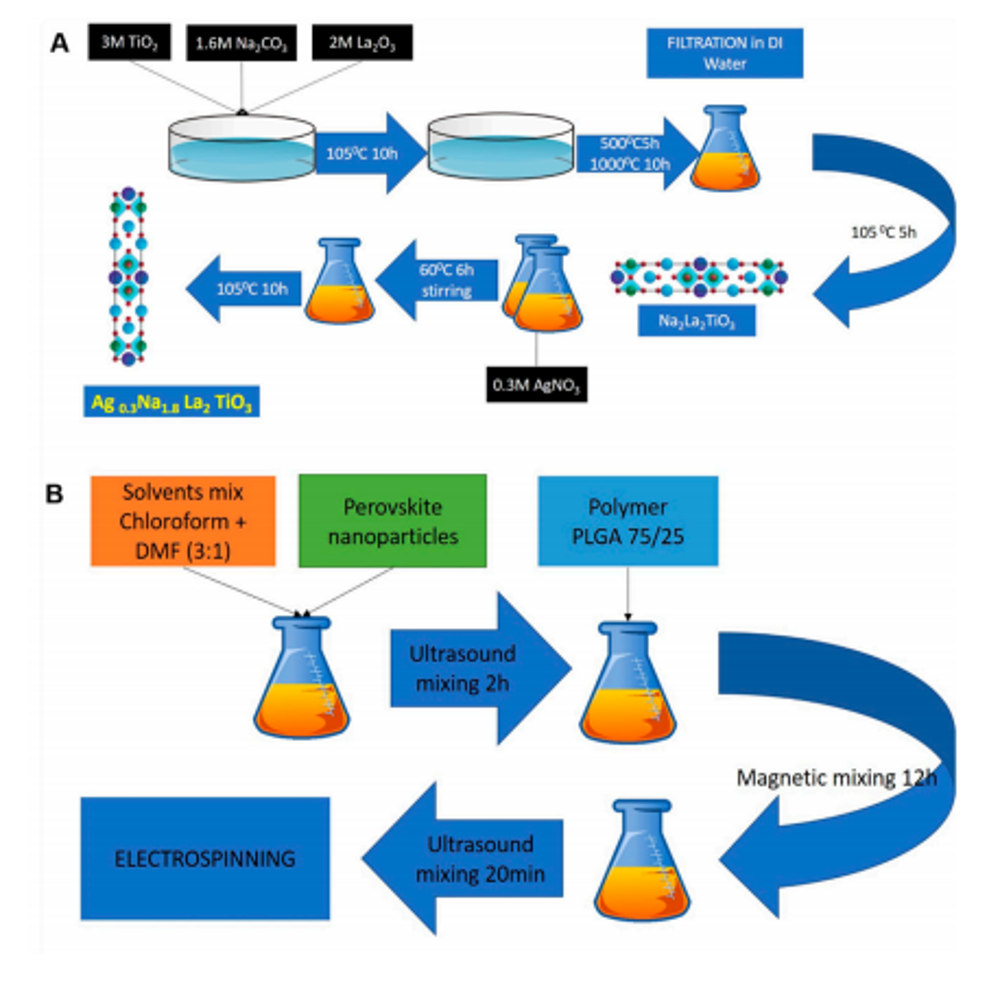A new study, led by Dr. Shayanti Mukherjee at the Australian Hudson Institute (a leading Australian translational medical research institute), has found that perovskites materials can have anti-microbial properties, without toxic side effects to human cells.
 (A) process of perovskite synthesis; (B) preparation of electrospinning solution with perovskite. Image from Nanomaterials
(A) process of perovskite synthesis; (B) preparation of electrospinning solution with perovskite. Image from Nanomaterials
Dr Mukherjee and her team, who already have a significant program researching new bio-degradable nanomeshes to revolutionize treatments for pelvic organ prolapse (POP), have shown for the first time that perovskites can be used as additives to engineer human tissue implants.
The study showed that the silver-based perovskite had strong anti-microbial properties and is non-toxic to human cells, possibly due to its low concentration.
In the study, silver-based perovskite particles were added to a polymer solution and spun for many hours using high-voltage in a process known as electrospinning. This produces ultra-fine mesh from nanofibrous strings, which mimic the nano-architecture of our body's own tissues.
The result is a 95% porous mesh which provides a favorable platform for human cells to anchor to and grow'a crucial requirement for implants. Dr. Mukherjee said the discovery was like finding the ideal ingredient to perfect a recipe. 'Perovskite particles blended in the polymer mesh act like chocolate chips in cookies ' giving just the right amount of, in this case, 'anti-microbial' flavor,' Dr Mukherjee said.
'When making a mesh with additives such as silver-based perovskites, the biggest risk is that it is toxic to human cells,' Dr Mukherjee said. 'We have shown that this ingredient is not toxic. In fact, the human cells grow really well and express the proteins that they need to.'
Dr. Mukherjee said the next step would be to investigate the application of the research further in the development of biodegradable nanomeshes to treat POP.



